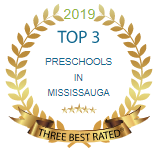By Sofia Coraines
The Montessori philosophy was started by a woman named Maria Montessori. She worked on developing her educational philosophy and teaching methods as long ago as 1897. To begin, she attended courses on pedagogy. Pedagogy is a word that means teaching theory.
To develop her own unique theory of education, Ms. Montessori attended classes at the University of Rome, and she also dug into everything she could find that had been published about educational theory in the two hundred years that preceded her.
She opened her own first class in 1907. This was called the Casa dei Bambini, or in English, the Children's House. This classroom was located inside of a housing project in Rome, Italy.
The Basis Of Montessori
Even in the beginning, Ms. Montessori used her own observations and experiments with children to supplement all of her knowledge about educational theories. In the process, she was educating children, but she was approaching the process in a very scientific manner. She revised her methods based upon her direct observations. Then she began to create and test her own educational theories. Not surprisingly, Maria Montessori began to refer to her work as scientific pedagogy.
Montessori In The USA
Only a few years after opening the first classroom in Rome, the practice spread to the United States. However, even though the first American schools were established in 1911, they were always subject to criticism in the US educational establishment. By 1914, the concept dwindled in the USA, and it really did not enjoy a rebirth until the '60s.
What Is The Montessori Model?
This model is based upon the work that Maria Montessori continued to do during her lifetime, and it has been expanded by other scholars since then. It includes a model of development and psychology that begins at birth and continues to the age of 24.
The basic work has education approaches split into these categories:
- Birth to age 3
- Age 3 to age 6
- Age 6 to age 12
During her lifetime, Ms. Montessori worked on an educational model for children from 12 to 18 years old, but she did not complete them.
The model is based upon these basic tenants:
- Both children and adults develop by engaging with their environment.
- Children, especially young ones, follow an inborn and innate development path.
Based upon this philosophy, Montessori teaches that children will choose the right path for their own optimum development if they are given the right opportunity. With that in mind, this educational theory believes that children will respond to free choices within a carefully prepared environment.
The most important stage of development might be from birth to age 6. She called that stage the "Absorbent Mind" stage because children are able to learn so quickly, but she says that begins to fade as children approach the age of six.
How does the absorbent mind work? For example, the vast majority of young toddlers learn to speak by simply hearing speech around them. Many people have noted that early childhood is also the best time for kids to get exposed to a second language. By the time children are in high school, when they may first get exposed to languages, it is much harder for them to learn another language.
Is Montessori Still Popular?
Actually, principals of Montessori are still very popular. This is particularly true in pre-schools, and this may be the most important place for them. However, even traditional schools have begun to see the validity of the Montessori approach, philosophy, and teaching methods. This might be seen in schools that have more resources to let children learn at their own pace and select subjects that are of particular interest to them.




